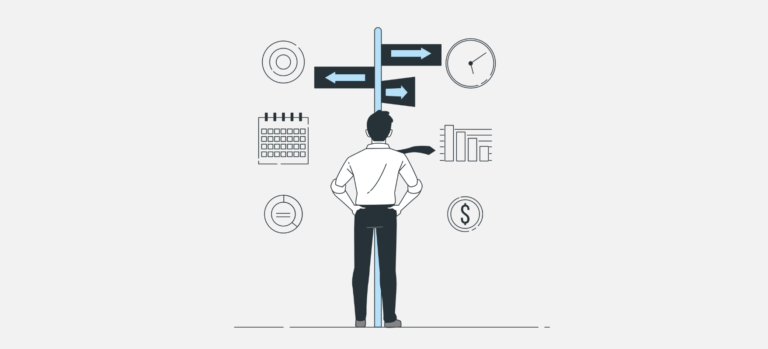Insuring your business: between obligations and risk management
Starting a business also means anticipating the risks that could jeopardize your operations. In Switzerland, the business insurance system is divided into two categories: social insurance and business-specific insurance. Depending on the legal structure you choose (sole proprietorship, GmbH, AG, etc.), the required insurance coverage will vary.
Compulsory insurance
AHV and IV
Every employer is required to contribute to AVS (Old Age and Survivors Insurance) and AI (Disability Insurance). These contributions fund the 1st pillar of the Swiss pension system and guarantee a minimum level of support in case of old age, disability, or death. For self-employed individuals, affiliation is also mandatory, and the full contribution (normally split equally between employer and employee) must be paid in full by the individual.
APG (loss of earnings insurance)
APG covers loss of income in special situations such as military service, civilian service, maternity and paternity. This insurance is compulsory and financed by contributions deducted at the same time as AHV and IV contributions.
Maternity insurance is part of the APG (Income Compensation Allowances) system and provides replacement income during maternity leave. It entitles the mother to compensation for 14 weeks following childbirth, covering 80% of the average income earned before the birth, up to a maximum of CHF 220 per day.
Unemployment insurance
Directors of public limited companies (SA) and limited liability companies (Sàrl), as employees of their own company, are also subject to unemployment insurance. This coverage is mandatory for all employees, but it is not available to self-employed individuals or to partners in general or limited partnerships.
LAA (accident insurance)
According to the Swiss Law on accident insurance, every employer must insure their employees against occupational accidents and, if they work more than 8 hours per week, also against non-occupational accidents. For the employer, this insurance is mandatory. As for self-employed individuals, accident insurance is optional but strongly recommended.
Occupational benefits (2nd pillar)
As soon as an employee's annual salary exceeds CHF 22,680In France, membership of a pension fund is compulsory. This occupational pension scheme (2nd pillar) supplements 1st pillar benefits and helps maintain your standard of living in retirement or in the event of disability. Contributions are equal shares between employer and employee.
Affiliation is optional for self-employed individuals. However, it is strongly recommended—or should be substituted with a pillar 3a plan offering similar coverage. In fact, self-employed workers are only protected through the first pillar.
Optional insurance
Daily Allowance Insurance in Case of Illness (IJM)
In the event of a prolonged illness, the employer is required to continue paying the employee’s salary for a legally defined period (e.g., based on the Bern scale). A daily sickness allowance insurance (IJM) provides replacement income to the employee after a specified waiting period. For the employer, it helps limit payroll costs during extended absences. While this insurance is optional under the law, many collective labor agreements make it mandatory—particularly in sectors like cleaning.
Corporate liability insurance
A claim involving a third party (client, supplier, or even a casual visitor) can quickly cost tens or even hundreds of thousands of francs. This insurance covers the financial consequences of such events, whether the damages are related to the company’s premises, its operations, or its products.
This insurance covers three main categories of risks: those related to premises (e.g., part of the building causes damage to external property), those related to business operations (such as damage caused at a client's site during an intervention), and finally, product-related risks, in cases of design or manufacturing defects that may cause material or bodily harm.
Professional liability insurance
This insurance is essential for professions where liability arises from providing advice—such as consultants, fiduciaries, lawyers, engineers, architects, healthcare professionals, and others. It covers financial losses suffered by a client due to an error, omission, or faulty advice. In certain professions, this insurance is mandatory.
Business interruption insurance
In the event of a fire, flood, or other incident that temporarily makes it impossible to continue operations, this insurance covers loss of revenue and fixed costs. It is essential for businesses that cannot quickly relocate their production or services.
Legal expenses insurance
Commercial or labor disputes can quickly lead to significant legal costs. This insurance covers lawyer fees, court expenses, and any expert assessments required to defend the company’s interests.
Cyber-insurance
With increasing digitalization, computer attacks and data leaks have become major risks. A cyber-insurance covers the costs associated with a cyber attack, including data restoration, legal assistance and crisis management.
Property insurance
Tangible assets often represent a significant portion of a company’s capital. Production machinery, specialized tools, inventory, IT equipment, or vehicles—the loss or damage of these assets can seriously threaten the continuity of business operations.
Real estate assets owned by the company must also be insured. Coverage typically includes risks such as fire, theft, water damage, glass breakage, and natural events (such as storms or floods).





